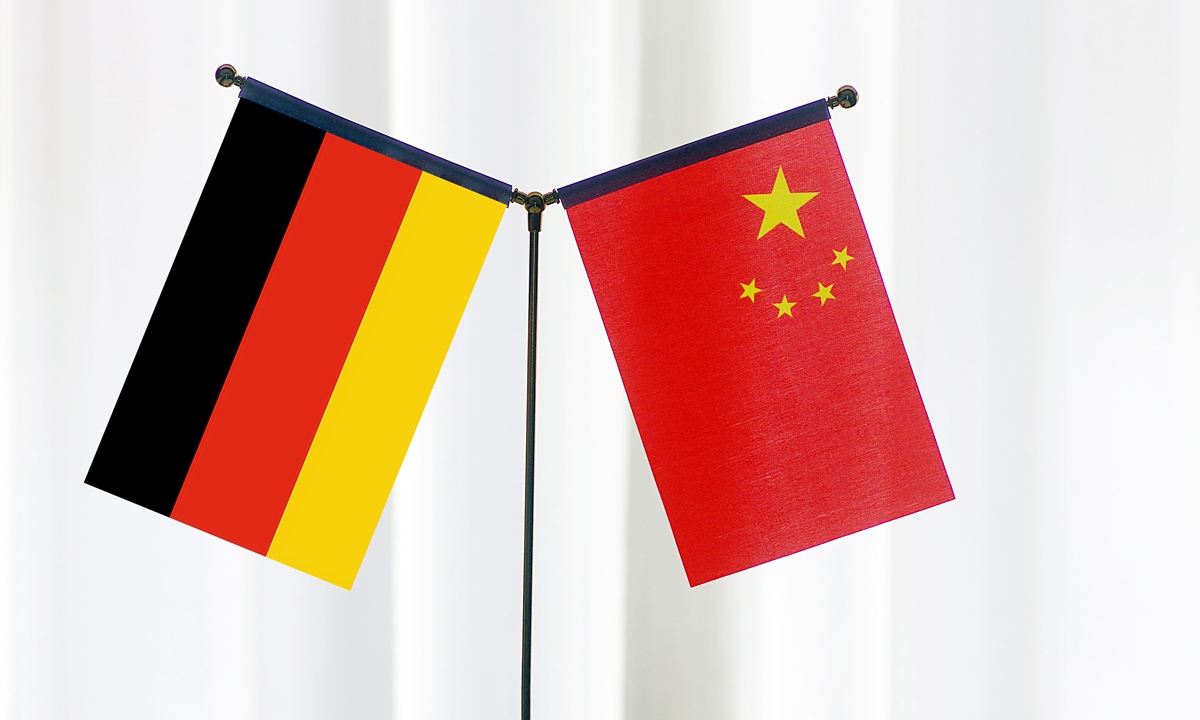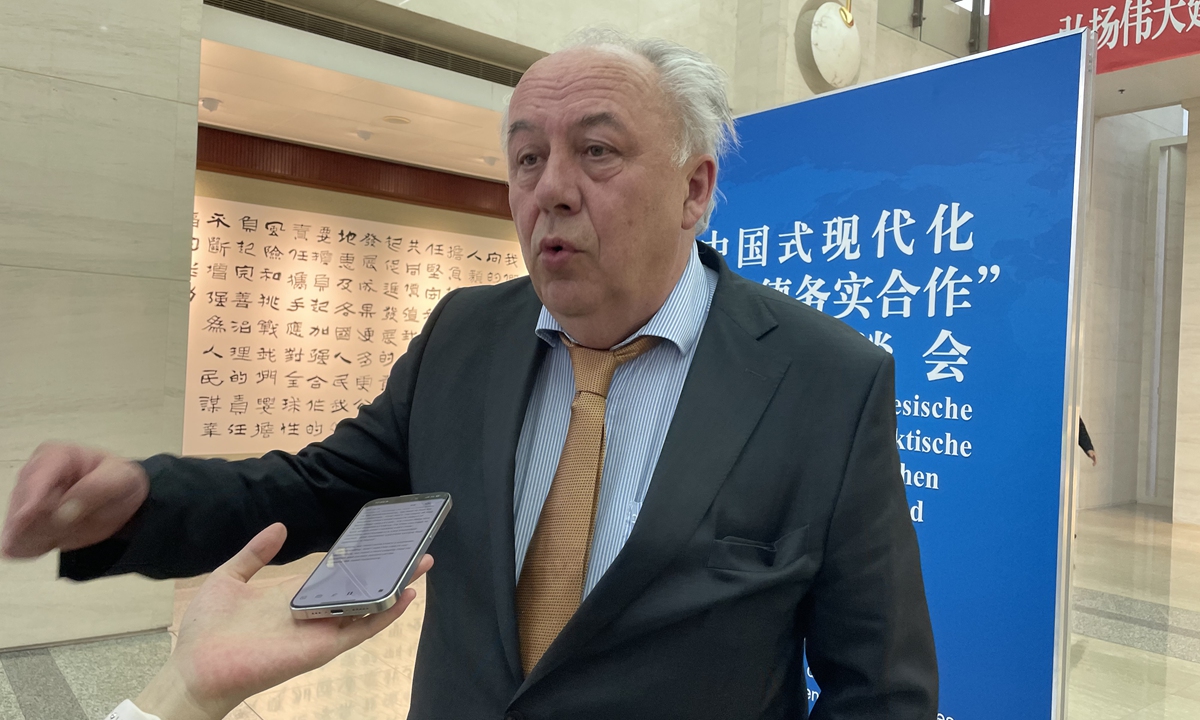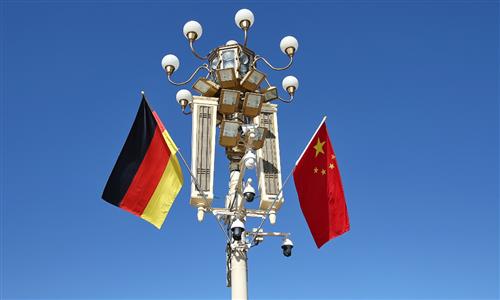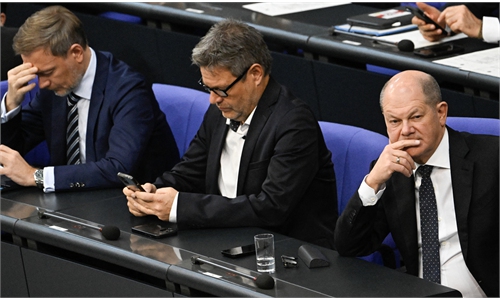China, Germany must have mutual understanding and balance to benefit from economic exchange

China Germany Photo:VCG
Editor's Note:
German Chancellor Olaf Scholz is scheduled to travel to China this weekend, accompanied by three federal ministers and a business delegation, according to media reports. The Global Times reporters Chen Qingqing and Bai Yunyi (GT) recently interviewed Matthias Machnig (Machnig), Vice President at SPD Wirtschaftsforum in Germany and former State Secretary at the Federal Ministry for Economic Affairs and Energy, talking about his expectations for the Chancellor's visit, China-Germany business relations and potential areas to cooperate in.
GT: What are your expectations for the upcoming visit of German Chancellor Olaf Scholz to China?
Machnig: Given the current stage of global economic and political development, I believe it's crucial for all parties to maintain communication and engage in open and friendly dialogue. We should explore areas of cooperation where possible and also define the interests of our respective countries. While there may be differences, it's important to seek common ground for addressing these issues. Therefore, I consider the Chancellor's visit to be very positive.
Yesterday, I had a meeting with Shi Minde, the former Chinese ambassador to Germany. He highlighted how, previously, due to the pandemic, the necessary exchanges couldn't take place. Over the past three years, since our last meetings, many things have changed - not just for Germany and China, but also in global politics and economy. Hence, continuous dialogue is crucial for understanding and identifying issues, followed by finding ways to address them. This, in my opinion, is the most important aspect.
GT: We noticed that this is Chancellor Scholz's first visit to China after Germany formulated its China strategy last summer. From your observation, what is the focus of this visit?
Machnig: Firstly, I believe the visit is important for fostering dialogue. I anticipate discussions on global political frameworks, including the situation in Ukraine. There's also an ongoing debate in Germany regarding overcapacity in the Chinese market, which I believe will be addressed. It's imperative to explore potential solutions to these issues, as in the global economy, we must strive for new balances. China, needing to export technology and automobiles, is looking for alternative markets, potentially with Germany and Europe. Hence, maintaining openness and fostering mutual understanding is crucial. We need a level playing field across various sectors of the economy, reciprocity for Chinese and German companies, legislative clarity and enhanced transparency, including involving German companies in the legislation process.

Matthias Machnig. Photo: Bai Yunyi/GT
GT: How do you propose striking a balance between the opportunities Chinese companies bring to Europe and the competitive challenges they present?
Machnig: We're not averse to competition, given the strength of our companies, such as Mercedes, Audi and BMW in the automotive sector. However, competition is beneficial only when there's a level playing field. If that's not achievable, it may lead to trade conflicts - a scenario we should strive to avoid. The European Commission is currently evaluating electric vehicles from China, indicating the need for intelligent solutions. There must be a mutual understanding and balance between China, Germany and the European Union to benefit from economic exchange. That, to me, is paramount.
GT: There are reports suggesting German companies are relocating from China to Southeast Asia and Japan. Do you believe the German economic and business communities are still engaging with the Chinese market?
Machnig: Yes, they are. Significant investments have been made by companies like BASF in the chemical industry. Recent reports in German newspapers also attest to continued engagement by German companies in China. However, recent geopolitical events, like the Ukraine crisis, have raised concerns about security and investment stability. This is particularly true for small and medium-sized enterprises (SMEs), which invest substantial sums. Political stability and relations between Germany, the European Union and China significantly impact investment decisions.
GT: In your view, what economic areas hold the greatest potential for cooperation between China and Germany?
Machnig: There are several promising fields, including investments in China and integrating Chinese investments into the German supply chain. Collaboration between Chinese and German automotive companies on electric mobility is another avenue. Digitalization and AI are crucial areas where common standards must be established. Data security and standards in digitalization are also essential for fruitful cooperation. Without such cooperation, the full potential of certain technological advancements may not be realized.
The Chancellor's visit comes at the right time with much to discuss and explore. After three years of limited dialogue due to the pandemic, it's imperative to reignite these intense discussions and return to meaningful dialogue.


